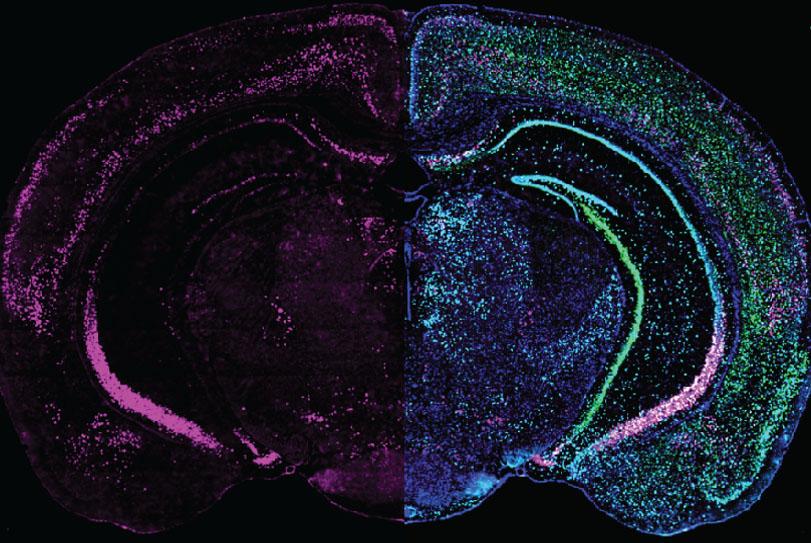Abstract
Inhibitory neurons throughout the mammalian cortex are powerful regulators of circuit excitability and plasticity and allow for the adaption of cortical processing to changing environments and experiences. However, how the activity of inhibitory neurons in the cortex is regulated is only partially understood. The differential expression of neuromodulator receptors in different types of inhibitory neurons suggests that each circuit motif is controlled by distinct neuromodulatory systems that are recruited in a context- and experience-dependent manner and thus allow for adaptive cortical processing by differentially shifting the activity levels of distinct cortical circuit motifs.
We found that the bombesin-like neuropeptide gastrin-releasing peptide (GRP) serves as such a regulator of cortical circuit activity through selective targeting and activation of vasoactive intestinal peptide (VIP)-expressing cells that in turn reduce inhibition of principal neurons. Using a newly-developed genetically-encoded GRP sensor and rabies-based trans-synaptic tracing we reveal cortical and subcortical sources of GRP that are putative contributors to context-dependent GRP release in the cortex. In vivo photometry combined with CRISPR/Cas9-mediated knockout of the GRP receptor (GRPR) in auditory cortex, as well as in vivo local drug infusion revealed how GRP modulates cortical circuits in vivo and how this in turn regulates sensory processing and behavior. Our data establish peptidergic recruitment of selective disinhibitory auditory cortical microcircuits as a mechanism to regulate auditory fear memories.
We are currently testing the involvement of additional neuromodulators in context-dependent regulation of cortical activity and plasticity.

Biography
Sarah Melzer is a postdoctoral fellow in Bernardo Sabatini’s lab in the department of Neurobiology at Harvard Medical School in Boston. Her research focuses on the neuromodulatory regulation of functional GABAergic circuits in the mammalian cortex. She uses and develops novel approaches to study neuromodulator function on circuit and behavioral level.
Sarah received her Bachelor’s degree in Biosciences from University Muenster (Germany) and Rijksnuiversiteit Groningen (Netherlands), and a Master’s degree in Molecular Biosciences and Neurosciences at Heidelberg University (Germany) including research stays in Japan and UK. Her graduate research in Hannah Monyer’s lab at Heidelberg University focused on local and long-range cortical inhibitory neurons using in vitro and in vivo electrophysiological and optogenetic approaches. Her work was published in Science, Nature Neuroscience, Neuron and Cell Reports. She joined Bernardo Sabatini’s lab in 2015 and was supported by EMBO, DFG, Brooks and Gordon postdoctoral fellowships.
Click here to register via Eventbrite
